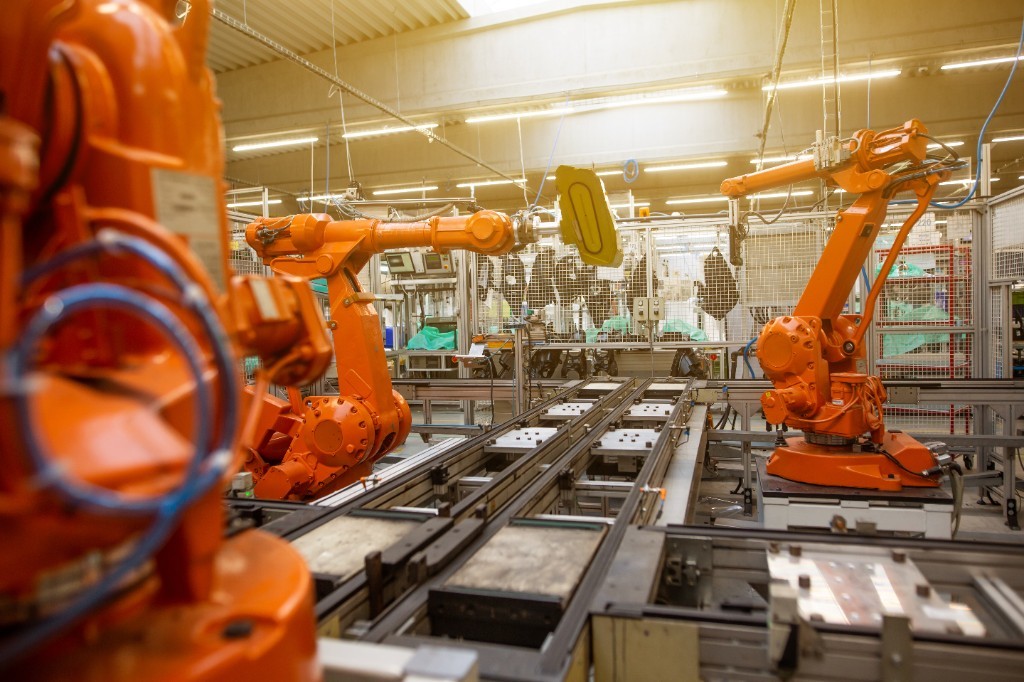In recent years, there has been a significant advancement in the field of Artificial Intelligence (AI) and Augmented Reality (AR). These technologies have become increasingly popular and have the potential to enhance virtual experiences in various fields such as gaming, education, healthcare, and...
Autonomous Vehicles Poised to Revolutionize Transportation

Autonomous vehicles, also known as self-driving cars, have been a topic of great interest and excitement in recent years. These vehicles have the potential to revolutionize transportation as we know it, with promises of increased safety, reduced traffic congestion, and improved fuel efficiency. With advancements in technology and the growing interest from major automakers and tech giants, it is clear that autonomous vehicles are no longer a far-fetched idea, but rather a reality that is set to transform the way we travel.
One of the biggest advantages of autonomous vehicles is the potential to significantly reduce accidents and fatalities on the roads. According to the World Health Organization, over 1.35 million people die each year as a result of road traffic crashes. Many of these accidents are caused by human error, such as distracted driving, speeding, or drunk driving. With autonomous vehicles, the reliance on human drivers is eliminated, and the vehicles are equipped with advanced sensors and artificial intelligence systems that can detect and respond to potential dangers much faster and more accurately than a human driver.
In addition to safety benefits, autonomous vehicles also have the potential to greatly reduce traffic congestion. Traffic congestion is a major problem in many cities around the world, leading to wasted time, increased fuel consumption, and negative environmental impacts. Autonomous vehicles have the ability to communicate with each other and with traffic infrastructure, allowing for smoother traffic flow and more efficient use of road space. They can also optimize routes and adjust speeds based on real-time traffic conditions, further reducing congestion and improving overall travel times.
Furthermore, the widespread adoption of autonomous vehicles could lead to significant improvements in fuel efficiency and reduced greenhouse gas emissions. Autonomous vehicles are designed to operate more efficiently than traditional vehicles, with features such as predictive braking and acceleration, optimized routes, and advanced energy management systems. These improvements can result in reduced fuel consumption and lower carbon emissions, contributing to a more sustainable transportation system.
In conclusion, autonomous vehicles have the potential to revolutionize transportation by increasing safety, reducing traffic congestion, and improving fuel efficiency. While there are still challenges to overcome, such as regulatory and legal issues, as well as public acceptance, it is clear that autonomous vehicles are set to transform the way we travel in the near future. The benefits of autonomous vehicles are not only limited to individual drivers, but also extend to society as a whole, with potential economic, social, and environmental advantages. It is an exciting time for the transportation industry, and the future looks promising with autonomous vehicles at the forefront of innovation.

Advantages of Autonomous Vehicles in Transportation
Autonomous vehicles, also known as self-driving cars, have the potential to revolutionize transportation in numerous ways. They offer several advantages that can improve the efficiency, safety, and convenience of travel.
1. Increased Safety
One of the most significant advantages of autonomous vehicles is their potential to improve road safety. Human error is a leading cause of accidents, but with autonomous vehicles, the risk of human error is greatly reduced. These vehicles are equipped with advanced sensors and artificial intelligence systems that can detect and respond to potential hazards more quickly and accurately than human drivers. This can lead to a significant decrease in accidents and fatalities on the road.
2. Improved Traffic Flow
Autonomous vehicles can also help alleviate traffic congestion and improve traffic flow. With their advanced communication systems, these vehicles can coordinate with each other and with traffic infrastructure to optimize their routes and speed, reducing the time spent in traffic jams. Additionally, autonomous vehicles can maintain consistent speeds and follow optimal driving patterns, minimizing abrupt stops and starts that can contribute to congestion.
3. Increased Accessibility
Autonomous vehicles have the potential to increase accessibility to transportation for individuals who are unable to drive, such as the elderly, disabled, or those without a driver's license. These vehicles can provide a convenient and safe mode of transportation for people who may otherwise be reliant on others or public transportation. With autonomous vehicles, individuals with limited mobility can regain their independence and have more freedom to travel.
4. Energy Efficiency
Autonomous vehicles have the potential to improve energy efficiency in transportation. These vehicles can be programmed to drive in a more fuel-efficient manner, optimizing speed and avoiding unnecessary acceleration or braking. Additionally, autonomous vehicle systems can communicate with traffic infrastructure to adjust traffic signals and reduce idle time at intersections, further improving fuel efficiency.
5. Reduced Parking Space
With the rise of autonomous vehicles, there is the potential for a reduced need for parking space. Autonomous vehicles can drop off passengers at their destination and then proceed to park themselves in designated areas or return to a central location. This can help free up valuable space in urban areas that is currently dedicated to parking, allowing for more efficient land use and potentially reducing the need for large parking structures.
In conclusion, autonomous vehicles offer numerous advantages that can transform transportation. From increased safety and improved traffic flow to increased accessibility and energy efficiency, autonomous vehicles have the potential to revolutionize how we travel and shape the future of transportation.



